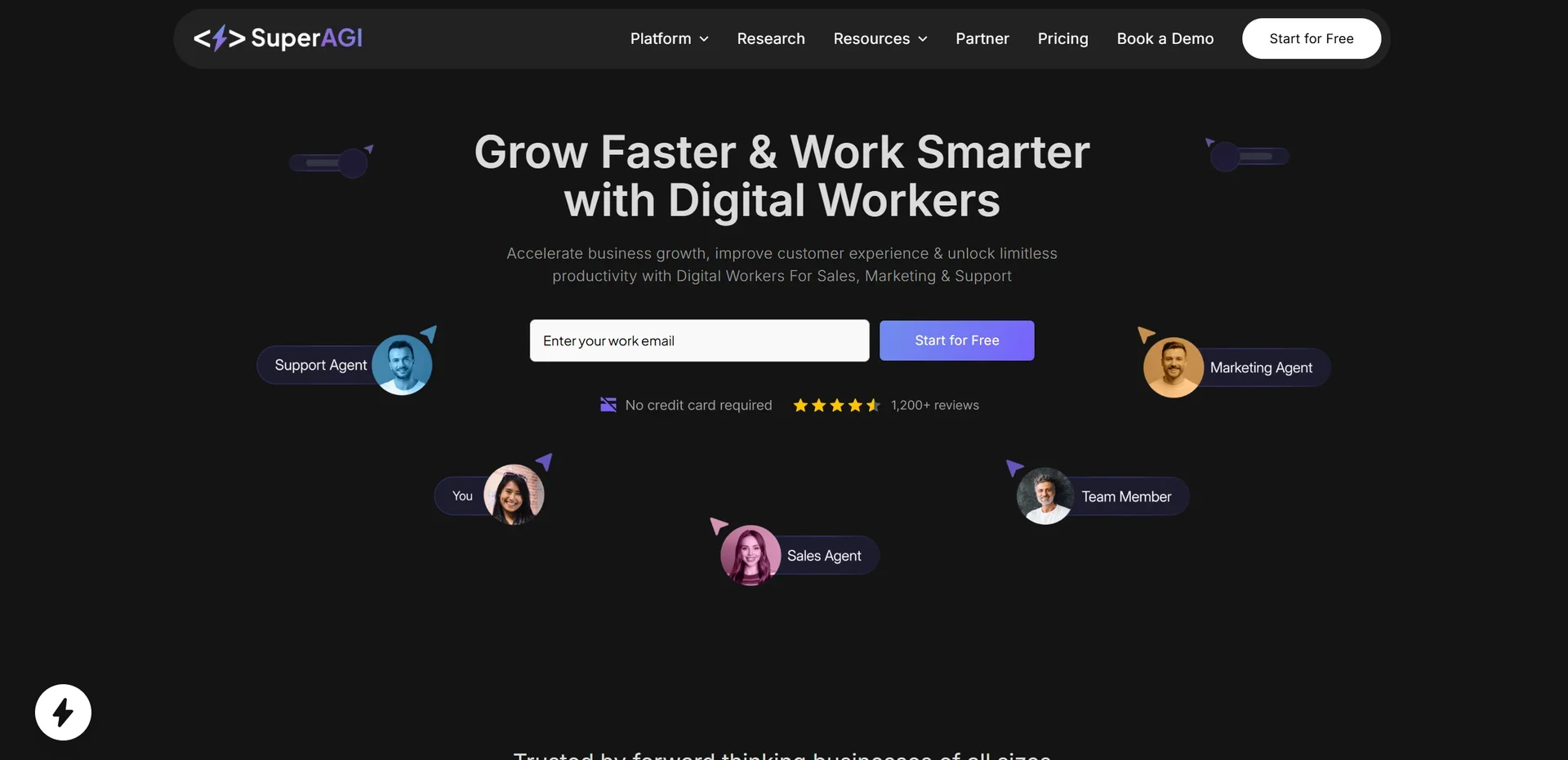SuperAGI

Description
🖼️ Tool Name:
SuperAGI
🔖 Tool Category:
Programming & Development — it falls under open-source agent frameworks for building and managing autonomous AI agents at scale.
✏️ What does this tool offer?
SuperAGI is an open-source autonomous agent framework that enables developers to build, run, and manage AI agents with greater control, speed, and visibility. It supports multi-agent collaboration, integrated vector stores, model management, real-time monitoring, and tool integrations. Designed for production-grade deployments, it streamlines the process of orchestrating intelligent agent systems powered by models like GPT-4, Claude, and local LLMs.
⭐ What does the tool actually deliver based on user experience?
• Build autonomous agents with minimal setup using a web-based GUI
• Manage execution flow, memory, tools, models, and resource usage
• Supports multiple agents operating in parallel with shared memory
• Integrates with APIs like OpenAI, Pinecone, Weaviate, HuggingFace, and more
• Offers plug-and-play toolkits (e.g., web search, file I/O, Google search, browser control)
• Logs, tracks, and debugs agent behavior in real-time via dashboards
• Highly modular and customizable for advanced developers and startups
🤖 Does it include automation?
Yes — SuperAGI is designed for full automation:
• Agents run autonomously through configurable tasks and goals
• Automatically selects and executes tools based on agent logic
• Supports long-term memory (vector stores), context-aware reasoning, and real-time updates
• Automation workflows can be triggered via UI or API
💰 Pricing Model:
Open-source — Free
🆓 Free Plan Details:
• 100% free and open-source under the MIT license
• Self-hosted via Docker or direct Python install
• Access to all core features and community support
• Compatible with free or paid APIs (OpenAI, local models)
💳 Paid Plan Details:
• No paid version of the framework itself
• You may incur costs from external APIs (e.g., OpenAI, Pinecone, SerpAPI)
🧭 Access Method:
• Available via GitHub and Docker
• Local installation supported (Python, Linux, macOS, Windows)
• Offers browser-based GUI for agent management and configuration
• Can run on-premises, in the cloud, or locally with full control
🔗 Experience Link: